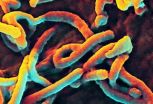(Press-News.org) (PHILADELPHIA) – There is an active controversy among oncologists about when to treat prostate cancer patients, with some suggesting that the word "cancer" be removed from the description of low grade disease, in order to prevent overtreatment. However a new study shows that these guidelines may not be appropriate for everyone, especially African American men.
"We know that African American men have more aggressive prostate cancer than Caucasian men," says Kosj Yamoah M.D., Ph.D., Chief Resident, Department of Radiation Oncology at Thomas Jefferson University. "Our study shows that African American men who are diagnosed with a low-grade cancer at first – the cancers that are sometimes watched rather than treated – are more likely to develop aggressive disease sooner than Caucasian men."
Dr. Yamoah, together with Timothy Rebbeck and colleagues from the University of Pennsylvania, looked at patients whose cancers were low to intermediate grade and who underwent surgery to remove all or part of their prostate. The surgery was important because often men are given a so called "biopsy" Gleason score of cancer severity based on 12 needle biopsies of the prostate gland. This method is imprecise, however, and may not accurately capture men with truly low risk cancers.
In order to bypass this issue, Dr. Yamoah and colleagues only analyzed the records of men whose cancers were confirmed to be low-grade after surgical removal via a so called "pathologic" Gleeson scoring system. This method looks at several cross-sections of the entire tumor, rather than relying on a spot test. The researchers found that even in these confirmed low-grade cancers, African American men were more likely to have disease progression and worse outcomes than Caucasian men. There was about a 10 – 15 percent difference in 7-year disease control in this low-grade group (90 percent disease control at 7 years for Caucasian men versus 79 percent in African American men).
Dr. Yamoah and colleagues stress that these findings are based on retrospective analysis, which looks at patient records, and that a prospective analysis will be more definitive in helping determine whether African American men with a low Gleeson score should receive more aggressive treatment. In the meantime, Dr. Yamoah is investigating the molecular fingerprint that would help identify the African American men at highest risk for disease progression compared with those for whom watchful waiting could still be the best option.
INFORMATION:
This work was funded in part by PHS, USA, Grant no. R01-CA085074, P50-CA105641, and P60-MD-006900, DOD, USA, Grant no. PC-121189, and the Prostate Cancer Foundation Young Investigator Award.
For more information, contact Edyta Zielinska, 215-955-5291, edyta.zielinska@jefferson.edu.
About Jefferson
Thomas Jefferson University (TJU), the largest freestanding academic medical center in Philadelphia, is nationally renowned for medical and health sciences education and innovative research. Thomas Jefferson University includes the Sidney Kimmel Medical College (SKMC), one of the largest private medical schools in the country and ranked among the nation's best medical schools by U.S. News & World Report, the Graduate School of Biomedical Sciences and the Jefferson Schools of Nursing, Pharmacy, Health Professions, and Population Health. Jefferson University Physicians is TJU's multi-specialty physician practice consisting of the full-time faculty of SKMC. Thomas Jefferson University partners with its clinical affiliate, Thomas Jefferson University Hospitals.
Paper Reference: K. Yamoah, et al., "African American men with low-grade prostate cancer have increased disease recurrence after prostatectomy compared with Caucasian men," Urologic Oncology, http://dx.doi.org/10.1016/j.urolonc.2014.07.005, 2014.
Watchful waiting isn't right for everyone
African American men are 1 population that may be harmed by new guidelines that favor observation over treatment of early-stage prostate cancer
2014-09-08
ELSE PRESS RELEASES FROM THIS DATE:
Study traces ecological collapse over 6,000 years of Egyptian history
2014-09-08
Depictions of animals in ancient Egyptian artifacts have helped scientists assemble a detailed record of the large mammals that lived in the Nile Valley over the past 6,000 years. A new analysis of this record shows that species extinctions, probably caused by a drying climate and growing human population in the region, have made the ecosystem progressively less stable.
The study, published September 8 in Proceedings of the National Academy of Sciences (PNAS), found that local extinctions of mammal species led to a steady decline in the stability of the animal communities ...
Broken signals lead to neurodegeneration
2014-09-08
Researchers from the RIKEN Brain Science Institute in Japan, in collaboration with Juntendo University and the Japan Science and Technology Agency, have discovered that a cell receptor widely involved in intracellular calcium signaling--the IP3R receptor--can be locked into a closed state by enzyme action, and that this locking may potentially play a role in the reduction of neuron signaling seen in neurodegenerative diseases such as Huntington's and Alzheimer's disease.
In the research published today in the Proceedings of the National Academy of Sciences, the scientists ...
In directing stem cells, study shows context matters
2014-09-08
MADISON, Wis. — Figuring out how blank slate stem cells decide which kind of cell they want to be when they grow up — a muscle cell, a bone cell, a neuron — has been no small task for science.
Human pluripotent stem cells, the undifferentiated cells that have the potential to become any of the 220 types of cells in the body, are influenced in the lab dish by the cocktail of chemical factors and proteins upon which they are grown and nurtured. Depending on the combination of factors used in a culture, the cells can be coaxed to become specific types of cells.
Now, in ...
Co-flowing liquids can stabilize chaotic 'whipping' in microfluidic jets
2014-09-08
VIDEO:
This video show jets emerging from the same glass needle in chaotic whipping (left) and a steady state helical whipping. By controlling the viscosity and speed of the liquid surrounding...
Click here for more information.
Industrial wet spinning processes produce fibers from polymers and other materials by using tiny needles to eject continuous jets of liquid precursors. The electrically charged liquids ejected from the needles normally exhibit a chaotic "whipping" structure ...
Brain injuries no match for sPIF treatment
2014-09-08
New Haven, Conn. — Researchers at Yale School of Medicine and their colleagues have uncovered a new pathway to help treat perinatal brain injuries. This research could also lead to treatments for traumatic brain injuries and neurodegenerative disorders such as Alzheimer’s and Parkinson’s.
The findings are published in the Sept. 8 issue of Proceedings of the National Academy of Sciences.
The microRNA let-7 is known to cause the death of neurons in the central nervous system. The research team found that a synthetic molecule derived from the embryo called PreImplantation ...
Textbook theory behind volcanoes may be wrong
2014-09-08
In the typical textbook picture, volcanoes, such as those that are forming the Hawaiian islands, erupt when magma gushes out as narrow jets from deep inside Earth. But that picture is wrong, according to a new study from researchers at Caltech and the University of Miami in Florida.
New seismology data are now confirming that such narrow jets don't actually exist, says Don Anderson, the Eleanor and John R. McMillian Professor of Geophysics, Emeritus, at Caltech. In fact, he adds, basic physics doesn't support the presence of these jets, called mantle plumes, and the ...
UCLA biologists delay the aging process by 'remote control'
2014-09-08
UCLA biologists have identified a gene that can slow the aging process throughout the entire body when activated remotely in key organ systems.
Working with fruit flies, the life scientists activated a gene called AMPK that is a key energy sensor in cells; it gets activated when cellular energy levels are low.
Increasing the amount of AMPK in fruit flies' intestines increased their lifespans by about 30 percent — to roughly eight weeks from the typical six — and the flies stayed healthier longer as well.
The research, published Sept. 4 in the open-source journal Cell ...
Rapid and durable protection against ebola virus with new vaccine regimens
2014-09-08
One shot of an experimental vaccine made from two Ebola virus gene segments incorporated into a chimpanzee cold virus vector (called chimp adenovirus type 3 or ChAd3) protected all four macaque monkeys exposed to high levels of Ebola virus 5 weeks after inoculation, report National Institutes of Health (NIH) scientists and their collaborators. The ability of the ChAd3 Ebola virus vaccine to elicit rapid protection in monkeys is notable as the world health community battles an ongoing Ebola virus disease outbreak in West Africa. While the protective effects of the single ...
Teens living with 2 college-educated parents less likely to use alcohol and marijuana
2014-09-08
ARLINGTON, Texas -- A high school senior who lives with two college-educated parents is significantly less likely to drink alcohol or smoke marijuana than a teenager who lives with one parent, a new University of Texas at Arlington study has found.
For example, teens living with their mother only are 54 percent more likely to use alcohol, and 58 percent more likely to smoke if they live only with their father.
Eusebius Small, an assistant professor in the UT Arlington School of Social Work, analyzed data on 14,268 teenagers to determine the impact of family structure ...
Ohio University paleontologists discover new species of titanosaurian dinosaur in Tanzania
2014-09-08
ATHENS, Ohio (Sept. 8, 2014)—Ohio University paleontologists have identified a new species of titanosaurian, a member of the large-bodied sauropods that thrived during the final period of the dinosaur age, in Tanzania. Although many fossils of titanosaurians have been discovered around the globe, especially in South America, few have been recovered from the continent of Africa.
The new species, named Rukwatitan bisepultus, was first spotted by scientists embedded in a cliff wall in the Rukwa Rift Basin of southwestern Tanzania. Using the help of professional excavators ...
LAST 30 PRESS RELEASES:
Nanoplastics can interact with Salmonella to affect food safety, study shows
Eric Moore, M.D., elected to Mayo Clinic Board of Trustees
NYU named “research powerhouse” in new analysis
New polymer materials may offer breakthrough solution for hard-to-remove PFAS in water
Biochar can either curb or boost greenhouse gas emissions depending on soil conditions, new study finds
Nanobiochar emerges as a next generation solution for cleaner water, healthier soils, and resilient ecosystems
Study finds more parents saying ‘No’ to vitamin K, putting babies’ brains at risk
Scientists develop new gut health measure that tracks disease
Rice gene discovery could cut fertiliser use while protecting yields
Jumping ‘DNA parasites’ linked to early stages of tumour formation
Ultra-sensitive CAR T cells provide potential strategy to treat solid tumors
Early Neanderthal-Human interbreeding was strongly sex biased
North American bird declines are widespread and accelerating in agricultural hotspots
Researchers recommend strategies for improved genetic privacy legislation
How birds achieve sweet success
More sensitive cell therapy may be a HIT against solid cancers
Scientists map how aging reshapes cells across the entire mammalian body
Hotspots of accelerated bird decline linked to agricultural activity
How ancient attraction shaped the human genome
NJIT faculty named Senior Members of the National Academy of Inventors
App aids substance use recovery in vulnerable populations
College students nationwide received lifesaving education on sudden cardiac death
Oak Ridge National Laboratory launches the Next-Generation Data Centers Institute
Improved short-term sea level change predictions with better AI training
UAlbany researchers develop new laser technique to test mRNA-based therapeutics
New water-treatment system removes nitrogen, phosphorus from farm tile drainage
Major Canadian study finds strong link between cannabis, anxiety and depression
New discovery of younger Ediacaran biota
Lymphovenous bypass: Potential surgical treatment for Alzheimer's disease?
When safety starts with a text message
[Press-News.org] Watchful waiting isn't right for everyoneAfrican American men are 1 population that may be harmed by new guidelines that favor observation over treatment of early-stage prostate cancer





